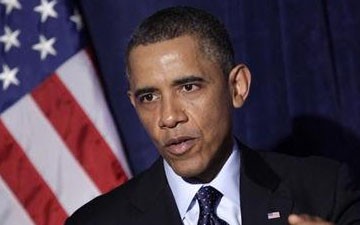[ad_1]
On Nov. 4, 2008, Barack Hussein Obama was elected the 44th president of the United States. The Democratic first-term U.S. senator from Illinois who was the son of a White mother from Kansas and a Kenyan father would go on to mark his place in history as the nation’s first Black commander-in-chief.
Obama’s election became a meaningful moment considering America’s tense racial history through slavery and the heavily segregated years of the Jim Crow Era, which gravely limited the access and power of African-Americans.
The Harvard-educated-biracial son of an immigrant, who married Michelle Robinson, an equally educated Black woman, and had two daughters, Malia and Sasha, would be sworn into office 11 weeks later as the leader of the free world. Obama’s election was the embodiment of the American Dream and would show the world how progressive the nation had become.
The Illinois senator announced his candidacy for the presidency in February 2007. Obama secured the Democratic nomination in June 2008. He campaigned on the theme of change with a powerful “Yes We can” motto, which appealed to a wide range of people includes minorities, middle and lower classes and young voters who were frustrated by the policies of President George W. Bush’s administration.
Despite the idea that America was far removed from its fraught racial past, Obama’s ascendance was met with backlash. Just days before the 2008 election, a life-sized doll fashioned after Obama was hung from a tree at the University of Kentucky.
But racist actions did not scare voters away from the polls. More than 131 million people cast ballots, making voter turnout for the 2008 election the highest it had been in 40 years. Obama secured 95 percent of the African-American vote; 67 percent of the Latino vote; and 66 percent of votes from 18–24-year-olds.
“If there is anyone out there who still doubts that America is a place where all things are possible; who still wonders if the dream of our founders is alive in our time; who still questions the power of our democracy, tonight is your answer,” Obama said in his victory speech in Chicago’s Grant Park.
He was inaugurated on Jan. 20, 2009, a time when America was facing its worst financial crisis since the Great Depression and was fighting wars in Afghanistan and Iraq. Later that year, he became the third sitting president to be honored with a Nobel Peace Prize.
The first bill President Obama signed into law was the Lilly Ledbetter Fair Pay Act, which extended the statute of limitations for women to sue over pay discrimination. He seated two female Supreme Court justices including Sonia Sotomayor, the first Hispanic justice. Obama also brought an end to the “Don’t Ask, Don’t Tell” policy, which banned openly gay individuals from serving in the military.
In his first 100 days in office, the 44th president approved the American Recovery and Reinvestment Act, a $787 billion economic stimulus package By July 2009, the recession America had faced was over.
The federal government also bailed out the U.S. automobile industry, saving nearly 3 million jobs under the Obama administration. The president also launched the Affordable Care Act, better known as Obamacare, which made health insurance available to 95 percent of the legal population.
Obama lifted the ban on federal funding of embryonic stem cell research. The commander-in-chief repealed some travel and money restrictions with Cuba and ordered the closure of detention camp on Guantanamo Bay, though it remains open today.
From the moment he was elected, he kept an open mind about the future and fighting for change in the United States.
“The road ahead will be long. Our climb will be steep. We may not get there in one year or even one term, but America, I have never been more hopeful than I am tonight that we will get there. I promise you: we as a people will get there,” he said during his election victory speech.
Although Obama’s approval rating fall from 61 percent to 57 percent in his first year as president, he was re-elected on Nov. 6, 2012, with nearly 63 million popular votes and 332 electoral votes.
[ad_2]
Source link

